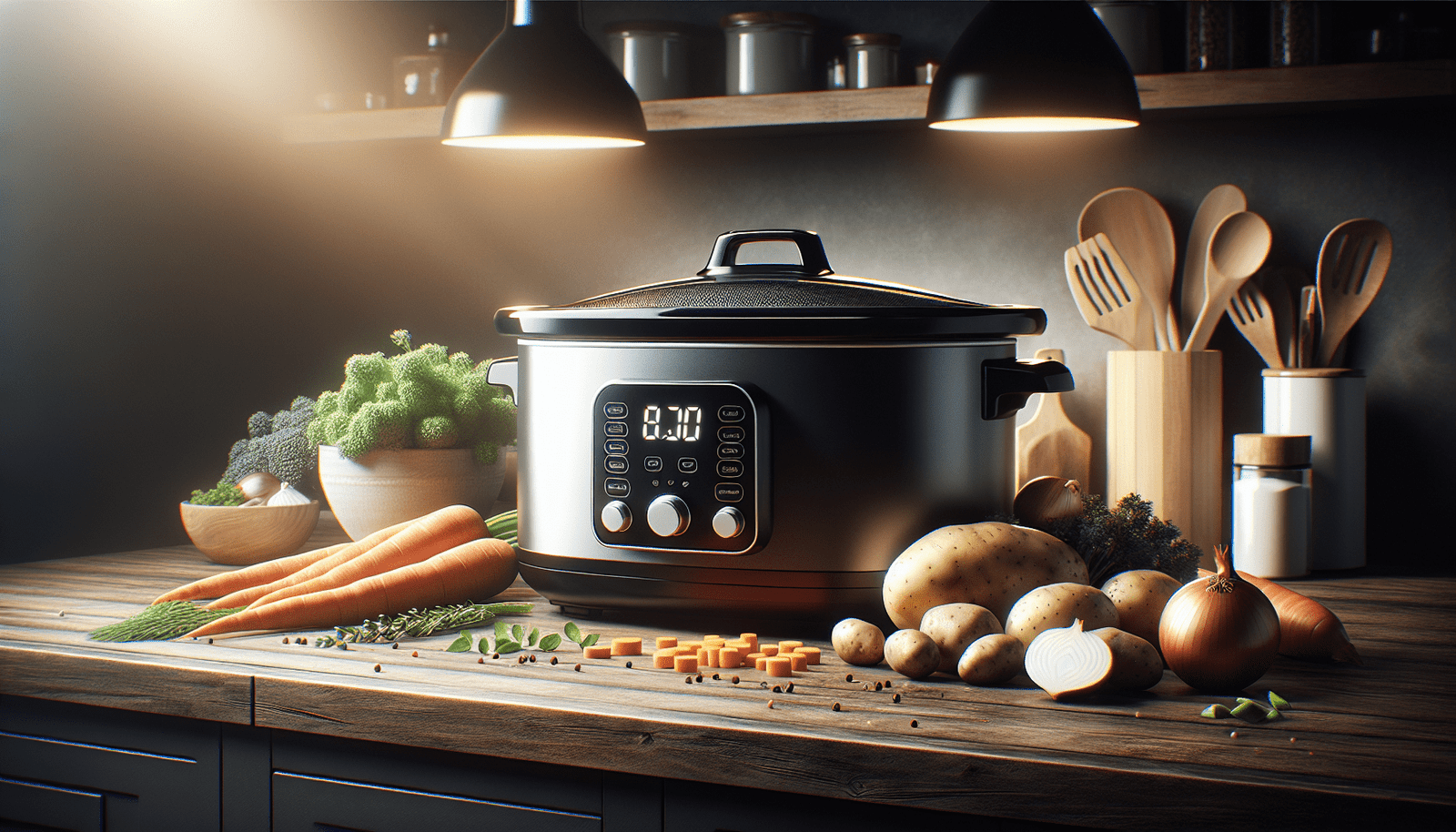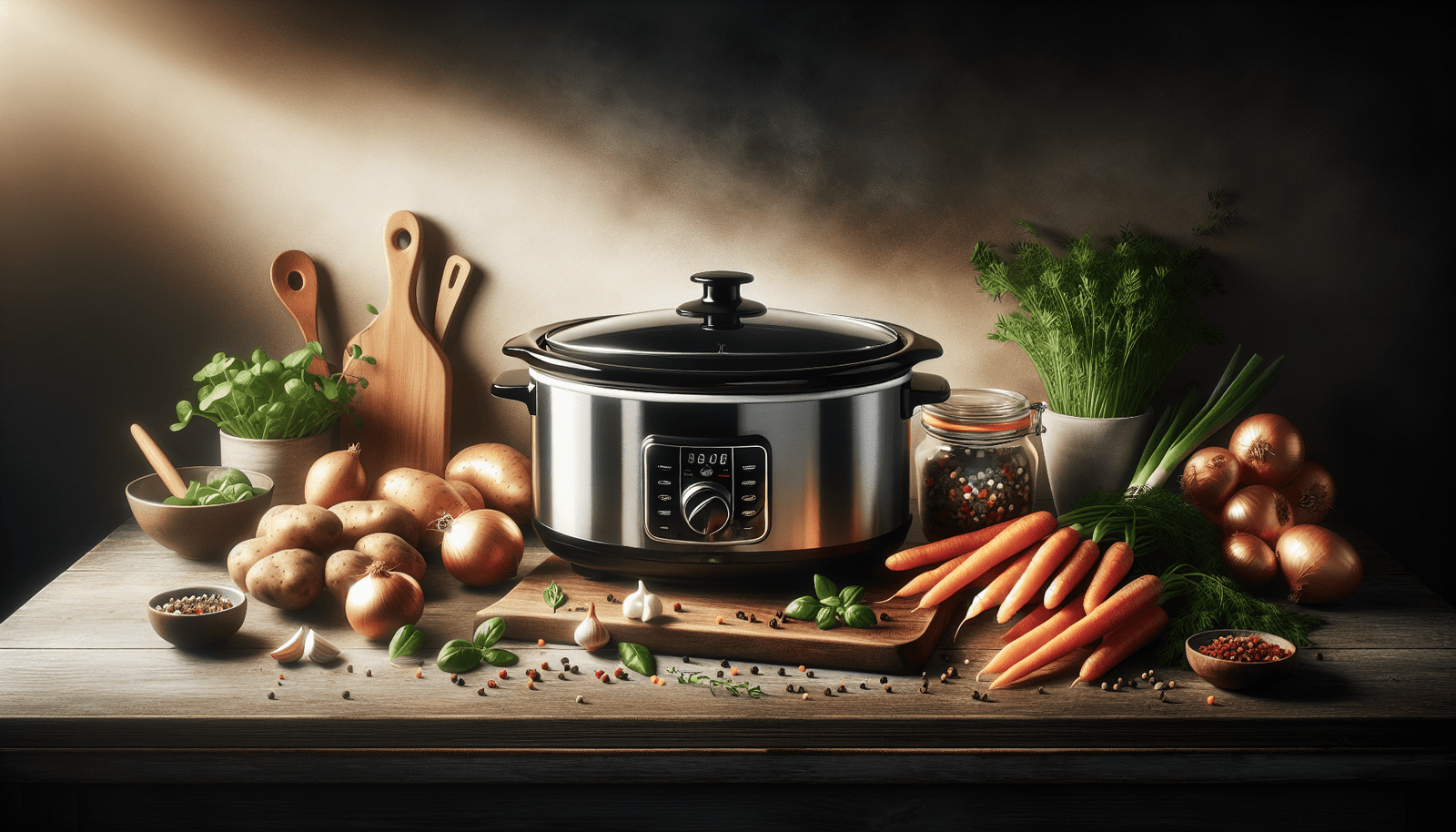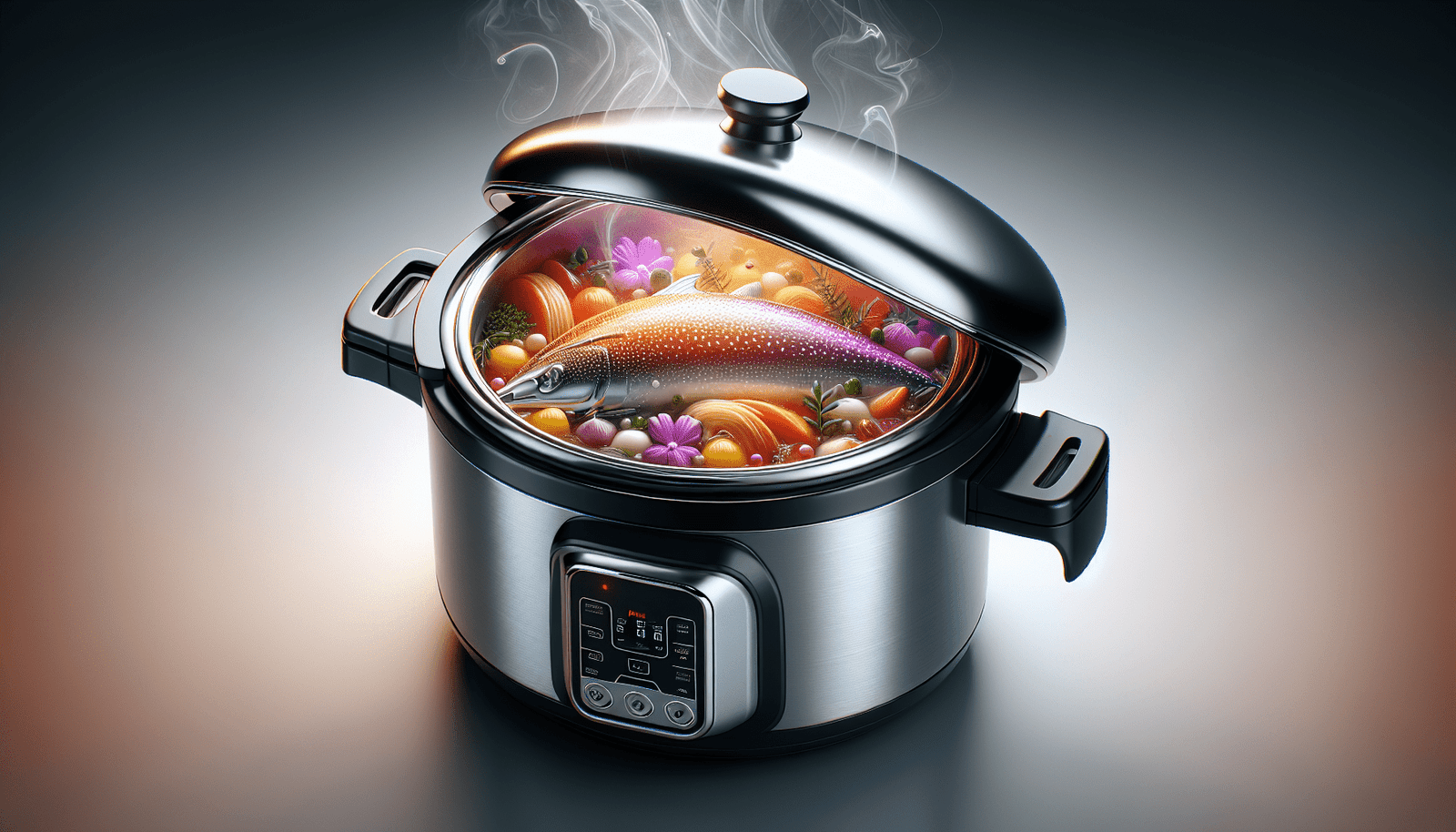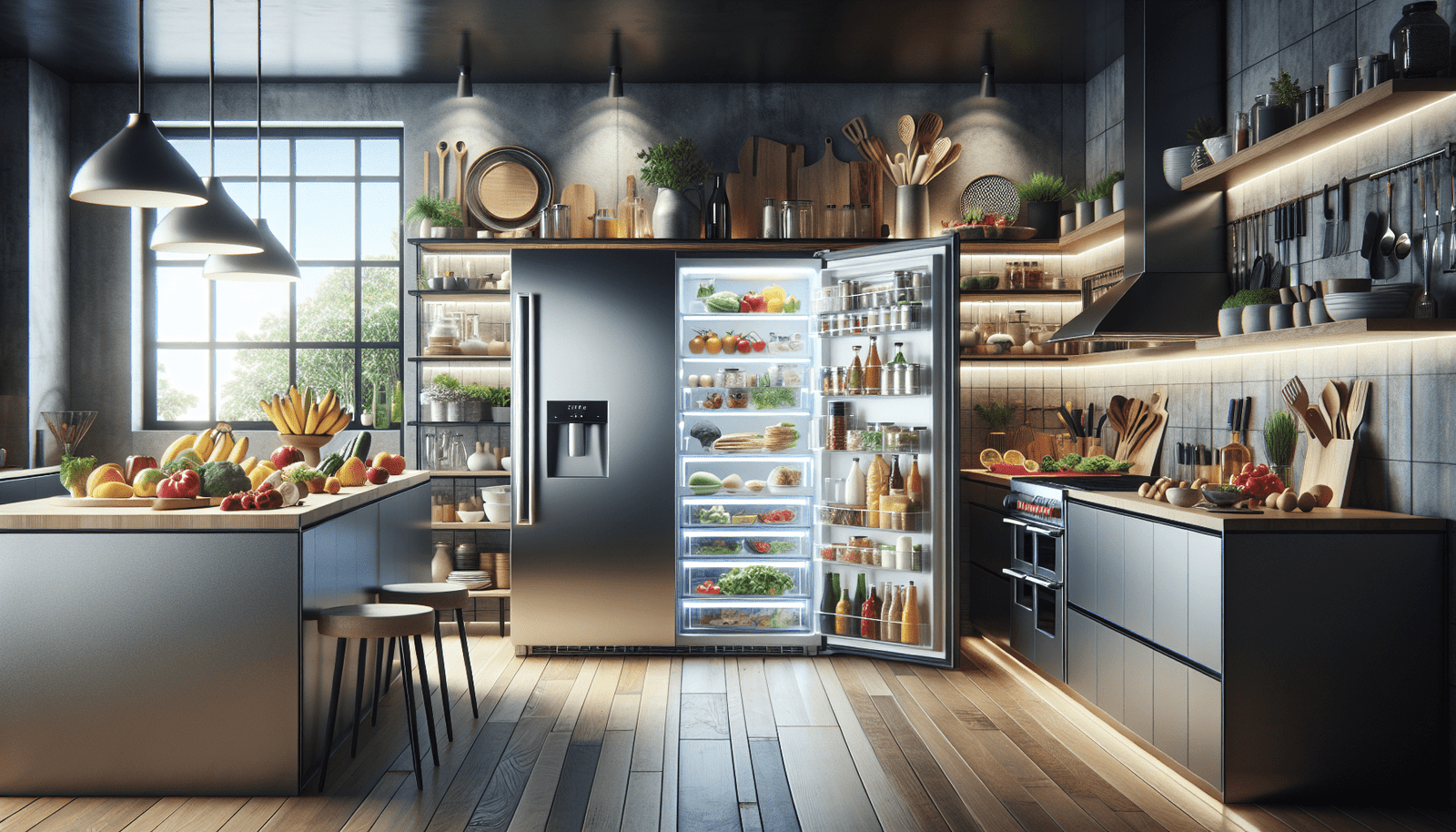Imagine stepping into the vibrant world of Cooking Appliance World, a place where your culinary dreams are not just nurtured but brought to life with the best kitchen gadgets, utensils, and supplies. At the heart of this culinary haven lies the Ultimate Guide to Slow Cookers, a treasure trove of expert reviews, insider tips, and exclusive deals that promise to elevate your kitchen game. Whether you’re simmering a slow-cooked stew to perfection or tenderizing meats to their utmost juiciness, this guide is your ticket to unlocking the full potential of slow cooking. Embark on this flavorful journey with us and transform your kitchen into a realm where efficiency meets creativity, promising every meal you craft is not just cooked but lovingly curated.
Ultimate Guide to Slow Cookers
Welcome to the fascinating world of slow cookers, an indispensable ally in your culinary journey. Whether you’re a bustling home cook or a professional chef, understanding and harnessing the power of slow cooking can transform your approach to meals, offering convenience without sacrificing flavor. Let’s embark on a comprehensive exploration of slow cookers, promising to make your experience in the kitchen both enjoyable and fruitful.

Understanding Slow Cookers
The Basics of Slow Cooking
Slow cooking is a method that allows you to prepare a variety of dishes by cooking them over low heat for an extended period. This gentle approach retains the moisture in the food, making it tender and infusing it with flavors. You can set up your slow cooker in the morning, head off to your day’s activities, and come back to a home filled with the aroma of a ready-to-eat meal.
Different Types of Slow Cookers
Slow cookers come in various shapes and sizes, from basic models that offer simplicity in operation to sophisticated units with digital interfaces. Some are designed for specific tasks like making soups, stews, or even desserts, while others are versatile enough to handle a wide range of recipes.
Advantages of Using a Slow Cooker
The primary benefit of slow cookers is convenience. They allow for “set it and forget it” cooking, freeing up your time for other tasks. Slow cookers are also energy-efficient, consume less electricity than ovens, and don’t heat up your kitchen. Moreover, they can enhance the flavors and tenderness of cheaper cuts of meat, proving to be economical.
Potential Drawbacks to Consider
However, slow cookers are not without their downsides. They require foresight and preparation, as meals need to be started hours in advance. Some dishes might not cater well to slow cooking methods, particularly those that require crisp textures or minimal cooking times.
Selecting the Right Slow Cooker
Capacity: Choosing the Right Size
Think about your household’s size and eating habits when choosing a slow cooker’s capacity. Smaller families or individuals might find a 3- to 4-quart model sufficient, while larger families or those who entertain often may require a 6- to 8-quart cooker.
Programming Features: Manual vs. Digital
While manual models are straightforward with simple settings, digital slow cookers offer more control and flexibility, such as delayed start times and automatic switch to “warm” mode after cooking.
Shape Considerations: Oval vs. Round
Oval slow cookers are better suited for larger or oddly shaped items, like whole chickens or roasts. Round models are perfectly adequate for soups, stews, and other dishes where shape isn’t a concern.
Extra Features: Timers, Warm Settings, and WiFi Connectivity
Features like timers and warm settings add convenience by allowing precise control over cooking times and temperatures. Some modern slow cookers even offer WiFi connectivity, enabling you to control your device remotely.
Preparing for Slow Cooking
Initial Cleaning and Maintenance Tips
Before you start, it’s essential to read the manufacturer’s instructions for cleaning and maintaining your slow cooker. Generally, most ceramic inserts and lids are dishwasher safe, but the base, containing the heating element, should never be submerged in water.
Prepping Ingredients for Optimal Results
For best results in slow cooking, brown meats before adding them to the cooker. This step enhances the flavor and appearance of the dish. Also, ensure ingredients are cut into uniform sizes for even cooking.
Layering Tips for Even Cooking
Place ingredients that take longer to cook, like root vegetables, at the bottom of the slow cooker, closer to the heat source. More delicate ingredients can be added later in the cooking process.
Understanding Liquid Usage in Slow Cooking
Slow cookers are designed to retain moisture, so you may need to adjust the amount of liquid in recipes not originally intended for slow cooking. Generally, less liquid is required, as there’s minimal evaporation.
Mastering Slow Cooker Recipes
Adapting Traditional Recipes for Slow Cooking
Many traditional recipes can be adapted for slow cooking with some adjustments, particularly in liquid volume and cooking time. This can open up a world of possibilities for experimenting with your favorite recipes.
Timing and Temperature Adjustments
Understanding the equivalence of cooking times and temperatures is crucial for adapting recipes. As a general rule, 1 hour of simmering on a stovetop corresponds to about 8 hours on low or 4 hours on high in a slow cooker.
Recipes for Beginners
For those new to slow cooking, starting with simple recipes like soups, stews, or casseroles can be a great way to get comfortable with your device. These forgiving dishes can help build your confidence.
Advanced Recipes for Experienced Cooks
Once you’re familiar with the basics, explore more complex recipes like bread, cakes, or even yogurt. Slow cookers offer a realm of creative culinary opportunities waiting to be discovered.

Making the Most of Your Slow Cooker
Batch Cooking and Meal Prep
Slow cookers excel at making large quantities of food at once, making them ideal for meal prep or batch cooking. This can save time and ensure you have healthy, homemade meals on hand.
Cooking Multiple Dishes at Once
With the use of aluminum foil, baking paper, or silicone molds, it’s possible to cook multiple dishes simultaneously in your slow cooker, maximizing its utility.
Tips for Thickening Sauces
If your sauce is too thin by the end of cooking, try removing the lid for the last hour to allow some of the liquid to evaporate. Alternatively, you can thicken sauces with a cornstarch slurry or by mashing some of the ingredients.
Desserts and Baking in a Slow Cooker
Slow cookers aren’t just for savory meals; they can also be used to make a variety of desserts, including cakes, puddings, and even bread. The low and steady heat ensures gentle cooking, perfect for delicate desserts.
Maintaining Your Slow Cooker
Regular Cleaning and Care
To ensure your slow cooker’s longevity, clean it after each use. Most removable parts are dishwasher safe, but always check the manufacturer’s recommendations.
Dealing with Wear and Tear
Over time, slow cookers can show signs of wear and tear, such as scratches or a dull finish on the ceramic insert. While minor imperfections may not affect performance, significant damage can impact cooking quality.
When to Replace Your Slow Cooker
If your slow cooker begins malfunctioning, such as not reaching the right temperature or heating unevenly, it might be time to consider a replacement.
Finding and Replacing Parts
Sometimes, replacing a damaged part can extend the life of your slow cooker. Many manufacturers offer replacement parts, ensuring you can continue using your device without needing to purchase a new one.
Troubleshooting Common Issues
Cooker Not Heating Up
If your slow cooker isn’t heating, first ensure it’s plugged in and the outlet is functioning. If problems persist, consult the manufacturer’s troubleshooting guide or consider professional repair.
Uneven Cooking
Ensure ingredients are cut into uniform sizes and properly layered. Also, avoid opening the lid frequently, as this can cause significant heat loss and affect cooking times.
Odors and Flavors Transferring Between Dishes
Thorough cleaning between uses is crucial to prevent odor and flavor transfer. If persistent, try cleaning the lid seal and ceramic insert with baking soda or vinegar to neutralize odors.
Cracked Ceramic Inserts
Cracks can occur due to sudden temperature changes. Avoid placing a cold insert into a preheated base or vice versa. If cracked, replace the insert to prevent safety hazards.
Accessorizing Your Slow Cooker
Must-Have Accessories
Investing in accessories like a meat thermometer, silicone utensils, and slow cooker liners can enhance your cooking experience and make cleanup a breeze.
Making Your Cooker Multi-Functional
Accessories like steaming racks or baking molds can turn your slow cooker into a versatile tool, capable of steaming vegetables or baking desserts.
DIY Hacks for Slow Cooker Accessories
Get creative with everyday items to maximize your slow cooker’s potential. For example, aluminum foil balls can be used to elevate a baking dish above the base, allowing for indirect cooking.
Storage Solutions for Accessories
To keep your cooking space organized, look for storage solutions that keep your slow cooker and its accessories easily accessible yet neatly tucked away.
Integrating Slow Cooking into Your Lifestyle
Planning Meals Around Your Schedule
Slow cookers are perfect for planning meals that fit your lifestyle. With a bit of preparation, you can enjoy home-cooked meals regardless of your daily schedule.
Healthy Slow Cooking Strategies
By using fresh ingredients and controlling portions, slow cookers can be a cornerstone of a healthy eating plan. The slow cooking process also preserves nutrients that might be lost in other methods.
Slow Cookers for Small Spaces
Even in the smallest kitchens, there’s often room for a slow cooker. Their compact size and simplicity make them an excellent choice for those with limited space.
Involving Family in Meal Preparation
Slow cookers can be a great way to involve the whole family in meal prep. Kids can help add ingredients and learn about cooking in a safe, approachable way.
Community and Resources
Finding Online Communities and Support
Numerous online communities and forums are dedicated to slow cooking, offering a wealth of knowledge, support, and recipe sharing.
Books and Guides for Slow Cooking
A variety of books and guides cater specifically to slow cooking, ranging from beginner’s guides to gourmet publications, providing a rich resource for recipes and tips.
Apps and Websites for Recipe Ideas
Many apps and websites offer slow cooker recipes with user reviews, making it easy to find new favorites and share your own creations.
Slow Cooker Cooking Classes and Workshops
For hands-on learning, seek out cooking classes and workshops focusing on slow cooking. These can offer valuable tips and tricks from culinary experts.
Embark on your slow cookery adventure with enthusiasm, knowing that this versatile tool can help simplify your meals, enrich your culinary experience, and bring joy to your kitchen. Remember, mastery comes with practice, and every meal is an opportunity to learn and grow. Happy slow cooking!


